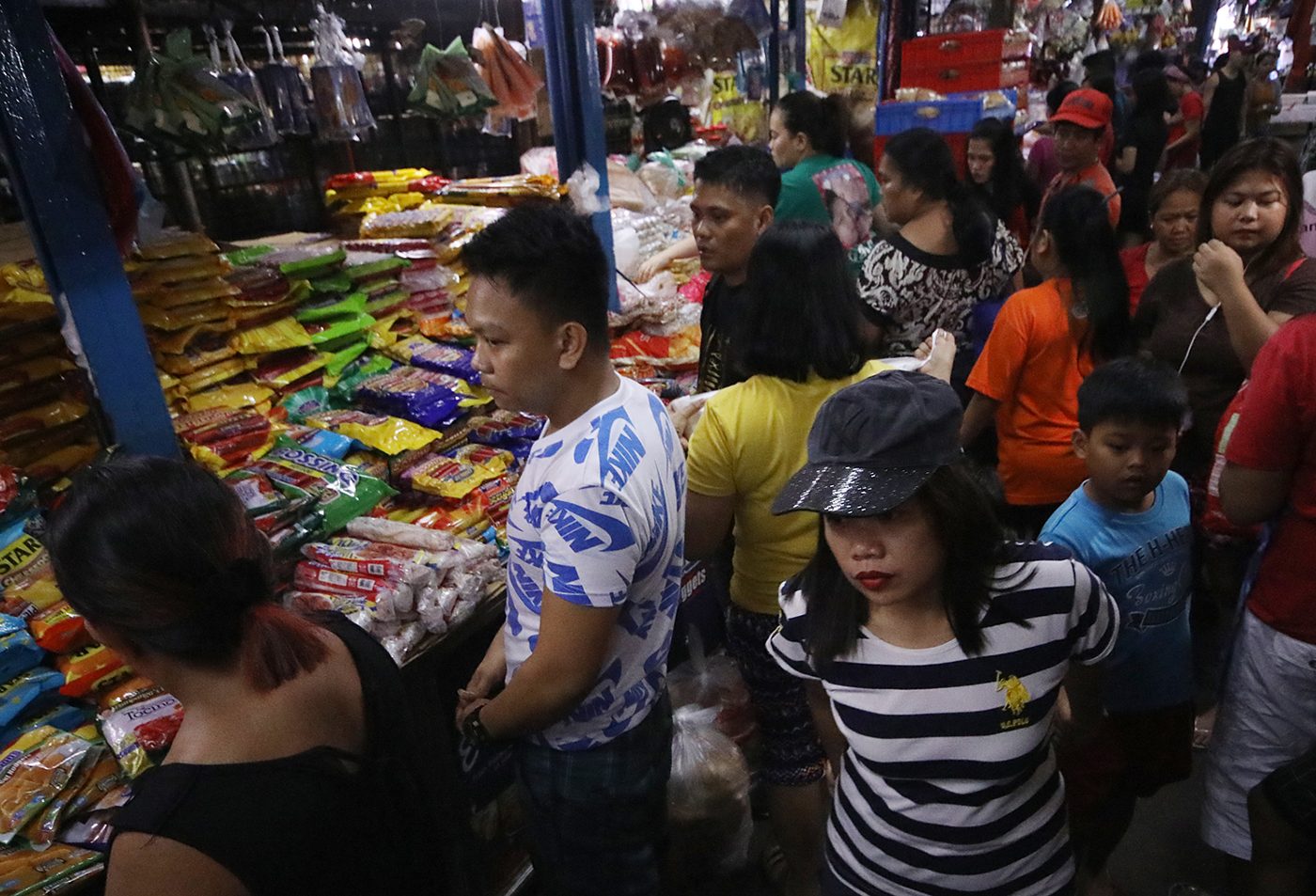SUMMARY
This is AI generated summarization, which may have errors. For context, always refer to the full article.

MANILA, Philippines – The government’s economic team was glad that inflation eased further to 4.4% in January and inched closer to the manageable range.
It seems, however, that officials were not pleased with how media and analysts supposedly handled and reported high inflation in 2018.
In a report from the Philippine Daily Inquirer, Bangko Sentral ng Pilipinas (BSP) Deputy Governor Diwa Guinigundo told economic journalists to avoid reporting on short-term market trends and instead focus on the long term.
“Unfortunately, we have seen the proliferation of some market analysts who would analyze the dynamics of inflation based on one-month-ago reading and prescribe monetary policy to the BSP on the basis of history,” Guinigundo was quoted as saying.
“As a result, the markets’ inflation expectations spiraled, demand mounted for the BSP to go on a full charge to tighter monetary policy amounting to a total of 175 basis points,” he added.
Guinigundo’s statements echoed the previous remarks of the Department of Finance (DOF) last December, which slammed the “faulty forecasting” of analysts.
Blame game
The economic team issues a joint statement every time the Philippine Statistics Authority (PSA) announces the inflation figure each month.
Rappler reviewed all joint statements issued in 2018 and found that the National Economic and Development Authority, the DOF, and the Department of Budget and Management never mentioned the media or analysts as factors which aggravated inflation.
The statements, however, were consistent in pointing out the problems in the agriculture sector, including rice supply.
The economic team repeatedly called on the Department of Agriculture (DA) to improve the state of farming in the country for food prices to be manageable.
They also asked the public to stay on guard against profiteers and report them to the Department of Trade and Industry.
Moreover, the economic team cited global risks and uncertainties as well as oil prices in the world market as factors for the spike in inflation.
They also said that they expect the country’s economy to recover and inflation to ease in 2019. Various media outfits repeatedly carried these remarks in reports.
Governance woes
While the BSP blamed media for supposedly worsening the inflation situation, experts and data show that governance was the main culprit.
The Tax Reform for Acceleration and Inclusion (TRAIN) law was expected to put upward pressures on prices, which is why government placed safety nets in the form of unconditional cash transfers and fuel cards for the poorest Filipino families.
However, a year has passed and the government has yet to fully distribute all funds to beneficiaries. (READ: How high inflation exposed cracks in governance)
In addition to that, the Bureau of Internal Revenue (BIR) still failed to meet revenue targets despite the implementation of the TRAIN law, which was crafted to collect more taxes and support the government’s infrastructure push.
The BIR collected P1.962 trillion in taxes in 2018, 4.01% short of its P2.044-trillion goal.
Finance Secretary Carlos Dominguez III said the BIR’s performance was “medyo okay na” or sort of good enough.
Meanwhile, the BSP implemented strong interest rate hikes to restrain expectations.
Implementing hikes primarily addresses demand-driven inflation or when people buy a lot of goods at a limited supply.
But the economic team pointed out that inflation last year was supply-driven, meaning goods were limited and production cost was high.
Socioeconomic Planning Secretary Ernesto Pernia previously said that while the central bank’s move may help, it will not directly address the inflation problem.
A member of the BSP Monetary Board, who requested anonymity, admitted that raising interest rates was not the way to go.
The board member said reforms and pressure on other government agencies to fulfill their mandates better are the more sound solutions.
Analysts fight back
Economist JC Punongbayan slammed Guinigundo’s claim, calling it unfair.
“Doing so distracts from the main drivers of inflation last year which included world oil prices, the rice crisis, and TRAIN, among others,” Punongbayan said.
“Playing the blame game also distracts from government’s responsibility to enact policies that will manage people’s expectations.”
He added that business reporters were merely doing their job in reporting the figures computed by the PSA.
In a tweet, Bank of the Philippine Islands lead economist Jun Neri simply said the remarks were “not new.”
Not new. Analysts are praised in good times. They are blamed in bad ones. #TheUsualSuspects #Hubris https://t.co/8ozmoOpkUn
— Jun Neri (@Jun_Neri) February 5, 2019
“Analysts are praised in good times. They are blamed in bad ones,” Neri said.
Ateneo de Manila University School of Social Sciences dean Fernando Aldaba expressed his disappointment, saying, “Not again.”
Easing inflation
The economic team said it continues to push for the full implementation of non-monetary and administrative measures to manage inflation.
They said the likely enactment of the rice tariffication bill into law would help as well.
The DA was once again urged to facilitate a comprehensive crop management system and implement a sustainable management of coastal and other marine resources.
“The agriculture sector needs greater attention now more than ever. The agriculture sector must work towards resiliency and be adaptive to extreme weather events,” the economic team said.
They also reiterated the timely release of the unconditional cash transfers and fuel vouchers to cushion the impact of inflation.
Media and analysts’ reports were not cited. – Rappler.com
Add a comment
How does this make you feel?
There are no comments yet. Add your comment to start the conversation.